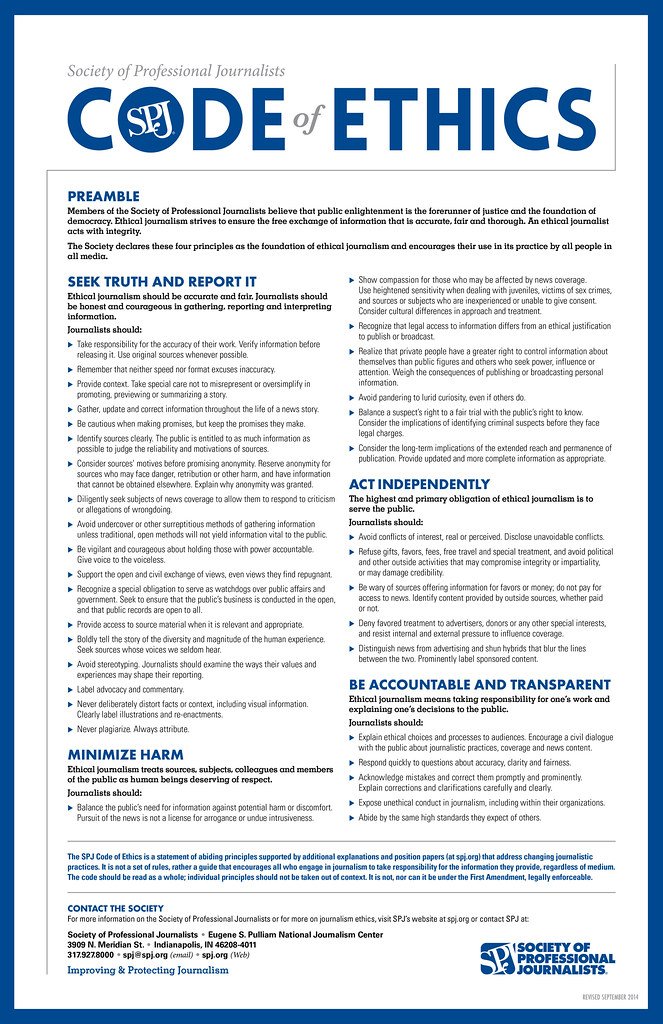Lock vulnerabilities have become a hot topic in recent years, shining a spotlight on the frailties of even the most seemingly impenetrable security systems. As technology advances, so does the sophistication of those seeking to exploit it. In this digital age, ethical reporting of lock vulnerabilities holds immense importance, bridging the gap between hackers and those committed to safeguarding our security. By responsibly disclosing these vulnerabilities, we can empower individuals and organizations to fortify their defenses, fostering a culture of collective resilience against potential threats. From understanding responsible disclosure practices to engaging in constructive dialogues, this article unravels the ethical complexities entwined with reporting lock vulnerabilities. Step into the realm of ethical hacking and discover the essential principles that guide us towards a safer tomorrow.
Table of Contents
- Understanding the Importance of Ethical Reporting in Lock Vulnerabilities
- Exploring the Potential Impacts of Lock Vulnerabilities on Security
- Best Practices for Identifying and Verifying Lock Vulnerabilities
- Guidelines for Ethically Reporting Lock Vulnerabilities
- Mitigating Risks and Promoting Responsible Disclosure in Lock Vulnerabilities
- Q&A
- Concluding Remarks

Understanding the Importance of Ethical Reporting in Lock Vulnerabilities
Lock Vulnerabilities and Ethical Reporting:
Exploring the world of lock vulnerabilities can shed light on the importance of ethical reporting. In today’s interconnected world, where security breaches and cyber threats are constantly looming, the responsibility lies on those who discover lock vulnerabilities to act ethically and responsibly. Ethical reporting ensures that both public and private entities are aware of potential security risks and can take appropriate measures to address them.
Why Ethical Reporting Matters:
- Transparency: Ethical reporting promotes transparency by disclosing lock vulnerabilities to the relevant authorities and organizations. This transparency allows for timely action and response, preventing potential breaches that could jeopardize personal, corporate, or governmental security.
- Accountability: Ethical reporting holds those responsible for the lock vulnerabilities accountable for their actions or oversights. Rather than remaining hidden or exploited, vulnerabilities can be addressed, and responsible parties can be held liable to ensure a safer and more protected environment.
- Collaboration: By adopting an ethical approach to reporting lock vulnerabilities, individuals can foster collaboration between different stakeholders, including security experts, manufacturers, and end-users. This collaboration leads to the development of stronger and more secure lock systems, benefiting all parties involved.
In conclusion, is vital in maintaining the security and safety of our digital and physical environments. By remaining vigilant, transparent, and accountable, we can work together to address vulnerabilities, strengthen security measures, and protect ourselves from potential threats.
Exploring the Potential Impacts of Lock Vulnerabilities on Security
Lock vulnerabilities can have serious implications on the overall security of a system. Whether it’s physical or digital locks, understanding the potential impacts is crucial in order to mitigate risk effectively.
One of the main concerns with lock vulnerabilities is the ease of unauthorized access. Weak locks can be easily picked or bypassed, allowing unauthorized individuals to gain entry into restricted areas. This poses a threat not only to physical assets but also to sensitive information or data that may be stored within those areas.
In addition to unauthorized access, lock vulnerabilities can also lead to increased instances of theft or vandalism. When locks are compromised, it becomes easier for criminals to break into a system or facility and carry out malicious activities without detection. This can result in financial loss, damage to property, and even harm to individuals in extreme cases.
To mitigate the risks associated with lock vulnerabilities, it is important to regularly assess and update security measures. This could involve exploring more advanced lock technologies, implementing access control systems, or even educating individuals on proper lock usage and maintenance. By staying vigilant and proactive, the potential impacts of lock vulnerabilities can be significantly minimized, ensuring the safety and security of both physical and digital assets.
Best Practices for Identifying and Verifying Lock Vulnerabilities
When it comes to ensuring the security of your locks, it’s crucial to adopt the . By being proactive and thorough in your approach, you can enhance the overall safety and protect your valuable assets. Here are some recommended strategies to follow:
- Regular inspections: Conduct routine inspections of all locks in your premises to identify any signs of wear, damage, or potential vulnerabilities. This includes examining lock mechanisms, latches, and strike plates.
- Test lock strength: To verify the resilience of your locks, perform strength tests by applying force and manipulation techniques. This will help ensure they can withstand potential break-in attempts.
- Upgrade to high-security options: Consider upgrading your locks to high-security options, such as electronic locks or those designed with advanced anti-picking and anti-tampering mechanisms.
- Consult with a professional locksmith: It’s always beneficial to seek advice from a qualified locksmith who specializes in security assessments. They can provide expert insights and recommendations tailored to your specific needs.
By implementing these best practices, you can significantly reduce the risk of lock vulnerabilities, enhance security, and gain peace of mind for your property and belongings.

Guidelines for Ethically Reporting Lock Vulnerabilities
When it comes to reporting lock vulnerabilities, it is crucial to adhere to ethical guidelines to ensure responsible disclosure and minimize potential harm. Here are some essential principles to consider:
- Thorough Analysis: Before reporting a lock vulnerability, conduct a comprehensive analysis to ensure its validity. Document and reproduce the issue to provide clear evidence to the lock manufacturer or relevant authorities.
- Responsible Disclosure: Always prioritize responsible disclosure. Alert the lock manufacturer or vendor about the vulnerability privately, giving them adequate time to develop and release a patch before making the information public.
- Clear and Detailed Communication: Provide a clear and detailed report that encompasses all necessary information for the manufacturer to identify and address the vulnerability effectively. Precise steps to reproduce the issue, along with any relevant code or technical details, can greatly assist in the resolution process.
- Educate the Community: Share your findings and knowledge with the wider community, using platforms that promote responsible disclosure. Engaging in discussions or presenting at security conferences can help raise awareness about lock vulnerabilities and encourage manufacturers to improve their products.
- Collaboration and Cooperation: Foster a collaborative environment by maintaining open lines of communication with the lock manufacturer, security researchers, and relevant industry stakeholders. By working together, stronger security measures can be developed for lock systems.
By following these ethical guidelines, we can collectively contribute to the improvement of lock security, protecting both individuals and their valuable assets.
Mitigating Risks and Promoting Responsible Disclosure in Lock Vulnerabilities
Lock vulnerabilities can pose significant risks to both individuals and organizations. To protect against such risks, it is essential to adopt measures that mitigate potential vulnerabilities in locks and promote responsible disclosure.
Mitigating risks involves implementing robust security practices and constantly evaluating the effectiveness of lock systems. Organizations should consider the following steps to minimize lock vulnerabilities:
– Conduct regular security audits to identify potential weaknesses and address them promptly.
– Invest in high-quality lock systems that are resistant to physical tampering and advanced hacking techniques.
– Stay informed about the latest lock vulnerabilities and security breaches, and apply relevant software patches and updates in a timely manner.
– Establish protocols for responsible disclosure, allowing individuals who uncover lock vulnerabilities to report them without fear of legal repercussions. Encourage partnerships with security researchers and offer bug bounty programs to incentivize responsible reporting.
Promoting responsible disclosure entails fostering an environment of collaboration and trust between security researchers, organizations, and the general public. By creating channels for disclosure and recognizing the contributions of those who identify vulnerabilities, we can enhance overall lock security and protect against potential threats. It is crucial to establish clear communication channels, such as dedicated email addresses or bug reporting portals, for security researchers to report vulnerabilities. Organizations should also maintain transparency in acknowledging and addressing reported vulnerabilities, ensuring prompt fixes and updates are released to mitigate risks effectively.
By taking proactive steps to mitigate risks and promote responsible disclosure, we can safeguard our lock systems and enhance the security of our homes, businesses, and critical infrastructure. Together, we can create a safer world where lock vulnerabilities are minimized, and responsible collaboration drives continuous improvement in security measures.
Q&A
Q: Why is it important to ethically report lock vulnerabilities?
A: Ethically reporting lock vulnerabilities ensures that manufacturers have the opportunity to fix them, preventing potential security breaches and protecting the end-users. It promotes transparency and responsible disclosure within the cybersecurity community.
Q: What is ethical reporting of lock vulnerabilities?
A: Ethical reporting involves responsibly disclosing lock vulnerabilities to the manufacturer or software developer before making them public. It allows the necessary time for patching, minimizes the risks of unauthorized access, and gives the manufacturer the chance to address the issue promptly.
Q: How do ethical hackers typically discover lock vulnerabilities?
A: Ethical hackers leverage various techniques such as penetration testing and code review to identify lock vulnerabilities. They employ their expertise and knowledge to find weaknesses, allowing for a more secure lock system in the long run.
Q: Are there any legal considerations when reporting lock vulnerabilities?
A: Yes, it is crucial to respect the law when reporting lock vulnerabilities. Ethical hackers should ensure they are not violating any computer crime laws or engaging in unauthorized access. Abiding by legal boundaries fosters a responsible and lawful cybersecurity practice.
Q: What steps should one follow when ethically reporting lock vulnerabilities?
A: The first step is to thoroughly document the discovered vulnerability, including clear steps to reproduce it. Next, contact the manufacturer or software developer, providing them with all the necessary information. Finally, allow a reasonable amount of time for them to address the issue before making the vulnerability public.
Q: How long should ethical hackers wait before disclosing a lock vulnerability?
A: While the exact time can vary, ethical hackers generally wait for 90 days before publicly disclosing a lock vulnerability. This timeline allows manufacturers sufficient time to fix the issue, promotes responsible disclosure, and protects the security of lock users.
Q: What risks could arise from not ethically reporting lock vulnerabilities?
A: Failing to ethically report lock vulnerabilities can lead to unauthorized access, compromising the security of individuals or organizations. It may also result in reputational damage for the manufacturer, legal consequences for the hacker, and potential lawsuits due to negligence.
Q: Can ethical hackers receive any rewards for ethically reporting lock vulnerabilities?
A: Yes, many organizations run bug bounty programs that reward ethical hackers for responsibly disclosing lock vulnerabilities. These rewards can be financial, recognition-based, or in the form of various incentives as an acknowledgment of the hacker’s efforts in enhancing cybersecurity.
Concluding Remarks
In conclusion, navigating the world of lock vulnerabilities poses a unique challenge. This article has delved into the intricate realm of ethical reporting, shining a light on the importance of approaching these discoveries with integrity, responsibility, and discretion.
As we conclude our journey through the ethical terrain, remember that reporting lock vulnerabilities carries a significant weight of responsibility. By adhering to established guidelines and codes of conduct, we not only protect the interests of individuals and organizations but also help foster a safer and more secure environment for all.
It is crucial to foster a culture of collaboration, where ethical hackers and manufacturers work hand in hand to rectify vulnerabilities, continuously improving the reliability of locks that safeguard our lives.
And so, as we venture forth into the realm of lock vulnerabilities, let us remain vigilant, always guided by the principles of ethical reporting. By embracing transparency, professionalism, and respect for privacy, we can shape a future where security loopholes are detected, addressed, and eradicated swiftly and responsibly.
Ethical reporting is not merely a duty; it is a fundamental pillar upon which trust, accountability, and progress in the realm of security rest. So, let us tread this path conscientiously, united in our pursuit to safeguard the key elements of our society—the locks that keep our belongings secure, and the trust that binds us together.
As an affiliate, my content may feature links to products I personally use and recommend. By taking action, like subscribing or making a purchase, you’ll be supporting my work and fueling my taco cravings at the same time. Win-win, right?
Want to read more? Check out our Affiliate Disclosure page.
